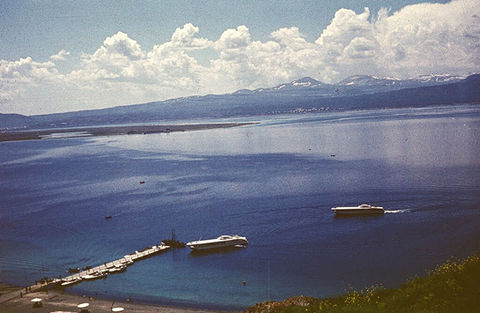

The Soviet “Raketa” boats of Lake Sevan
I traced the iconic Raketa boats of Lake Sevan to find out where they are resting now. This article sheds light on their story and final resting places. Once highly popular among visitors, these hydrofoils became one of the true symbols of Lake Sevan.
The Raketa (Russian: Раке́та, meaning “Rocket”) was the first type of hydrofoil boat produced commercially in the Soviet Union. Originally conceived in the late 1940s as Project 340 by chief designer Rostislav Alexeyev, the vessels were manufactured from 1957 until the midst 1970s.

The "Raketa" boats of lake Sevan
In total, around 400 hydrofoils were built. The first experimental vessel, Raketa-1, was constructed at the Krasnoye Sormovo shipyard. Serial production was later established at the Feodosiya shipyard “More.” Between 1959 and 1976, 389 Raketas were built, more than thirty of which were exported abroad — to countries such as Austria, Cambodia, England, Finland, China, the Netherlands, and Poland. Their high-speed diesel engines were supplied by the Zvezda factory in Leningrad.

One of the 2 "Raketa" boats that is now a restaurant
The Raketa quickly became a symbol of Soviet engineering and modernity. They entered commercial service along the Volga River and other waterways across the USSR. One was even operated by the almighty KGB.
Armenia also had its share of these iconic vessels. Two Raketas were brought to Lake Sevan, where they became highly popular among locals and tourists. Sleek, fast, and prestigious, they were in service until around 1985. Today, they survive only as silent relics of a bygone era.
Curious about their fate, I decided to track them down. What I found was a story of two very different destinies.
One of the Raketas has been transformed into a restaurant on the way to the Artanish Peninsula. Fittingly, it still carries the name Raketa.

The second, however, met a far grimmer fate. It sits abandoned on the other side of Sevan, near the road to Hayravank Monastery. Rusting quietly on the lakeshore within the grounds of an unfinished hotel, it is still visible from the highway.
Earlier this year, I attempted to get closer for a photo. I parked near a garage — a mistake, as it turned out. The garage belonged to one of the site’s guards. With reconstruction of the hotel now underway, the territory is closely watched. By the time I realized I had taken the wrong path and tried to circle back, the guards had already found me. They were not happy with my presence, and despite my attempts to explain, I was not allowed near the abandoned Raketa.

In the territory of the unfinished hotel I saw a swimming pool shaped like lake Sevan
For now, the Raketa remains off-limits, a rusting monument to Soviet engineering slowly fading away on the shores of Sevan. But my search isn’t over. I plan to try again — and when I do, I’ll update this story.
I’m Suren, a professional urban explorer in Armenia. I offer unique urbex tours to abandoned, hidden, and off-the-map places you won’t find in guidebooks. Want a custom itinerary? Contact me on WhatsApp or Telegram.














